Published on: May 5, 2023 Updated on: February 14, 2024
What is Sales AI? Shaping The Future Of Sales – 2024 Update
Author: Inge von Aulock

Wouldn’t it be great if your sales team closed more deals in less time? Would it help if you knew where your next sale was coming from and how to leverage all that data stuck in your CRM tool? AI technology is revolutionizing the way companies sell, and it could do the same for your sales division.
AI software tools can automate non-sales activities so that sales reps can focus on building relationships and closing deals. They also extract meaning from mountains of data so that sales managers can effectively direct their sales resources.
AI sales tools won’t be replacing your sales team any time soon, but if you want more sales, AI can turn your current team into a more efficient and effective sales machine.
Sales AI combined with CRM and plenty of other data equals sales magic. Let’s see how.
What is artificial intelligence?
AI is a broad description of a few core types of software technologies that are great at learning, analyzing, adapting, and improving with little or no outside guidance.
You’ve probably used business and sales automation tools in your sales organization already. Now imagine those tools upgrading themselves and improving and developing new capabilities without you paying for an upgrade. That’s AI.
You may have heard of terms like Machine Learning, Deep Learning, Natural Language Processing, and a few others. These technologies enable software to perform mundane tasks a lot quicker than humans can. And many of these tasks are probably slowing your sales reps down right now.
AI sales technology can wade through huge amounts of customer, market, and sales data and extract trends and opportunities in seconds. This makes forecasting and strategic decisions easier to do accurately.
AI will use machine learning to scan your sales pipeline and pick out the hottest prospects so your sales reps don’t chase cold leads.
And sales staff are being coached by AI on what to say at just the right time to handle queries and objections from potential clients.

Let’s look at some specific examples of how you can leverage AI in your business.
How do I use AI to support sales processes?
When your team’s efforts result in closing a deal, it’s because a number of aspects of the sales process all worked well together to produce the result.
Here are some key steps in the sales process that AI for sales can help you do better.
Understanding your customer
If you knew exactly what your customer wanted and when they wanted it, then sales would be a lot easier. Is your prospect excited, unsure, angry, or confused? Those emotions need to be managed.
AI can monitor sales calls and use sentiment analysis to understand exactly what frame of mind the customer is in. It can then guide the salesperson in what to say next.
Sales AI tools can analyze data from all the interactions with your sales prospects and predict which of them are closer to closing. These tools can also highlight deals that are in danger of being lost and need escalation higher up the sales management team.
AI can also help to personalize your offering to your customer’s individual requirements. It can analyze past purchasing habits, emails, chats, telephone calls, or even social media posts and reviews to allow for predictive personalization. This is great for getting prompts for cross or upselling opportunities.
You know how YouTube seems to understand exactly what video you’d like to watch next? AI sales tools can help you do the same thing with your customers.
Managing sales reps’ performance
Why is it that some sales reps do really well while others don’t? Selling is an art, but you can improve individual sales rep performance by getting them to do key things well. Knowing what needs improvement and coaching sales staff is challenging.
AI sales tools can analyze sales rep interactions with customers and tell you what works well and what doesn’t. AI can listen in on a sales call and pick up on key words and phrases or how often a competitor’s name comes up.
These tools can identify trends and objections and analyze which ones are handled well by sales staff and which aren’t.
After monitoring all the sales engagements of your team, these tools can provide analytics to highlight which of your staff needs coaching and in which areas.
AI also learns from deals that are closed successfully to identify key areas in the sales call that were responsible for closing the sale.
If you knew which objections came up most often, which sales reps handle them well, and which don’t, then you’d know exactly how to direct your coaching efforts.
You can’t hop on shadow calls all day with your staff or monitor sales emails all day. But AI can.

Forecasting
Having accurate sales forecasts are key to resource and financial planning for sales leaders. But it’s really tough to do. It involves analyzing historical data, your current pipeline, and feedback from your sales teams to get an idea of which deals will close and which won’t.
Sales reps will go with a “gut feeling” and tend to be overconfident, which is why your forecasts are often overly ambitious. The data you need is in your CRM, but extracting usable info from it can be difficult. And there’s hidden information in telephone calls and emails that can easily be missed.
AI in sales can help sales leaders get a lot better at planning. It can analyze all your sales and marketing data as well as customer interactions to give you a real-time snapshot of the health of deals in your pipeline.
Competitive intelligence
Know your enemy. You know who your competitors are, but so do your prospective clients. Knowing exactly what is happening in your market gives your sales professionals the edge when pitching your product.
Keeping up with market news can be a full-time job, though. AI tools can scan multiple sources of industry-related information and give you real-time insights into your competitors or what the market is demanding.
Lead generation and prioritization
Outbound lead generation involves directly approaching potential leads with your offering. But what is the ideal profile of your customer?
Inbound lead generation relies on potential leads contacting your company in response to advertising efforts. But which leads should you follow up on?
In both of these cases, you need to qualify these leads to decide where to direct your sales resources.
Even if you’ve got a full pipeline but each prospect is at a different point in the funnel, knowing which prospect to prioritize is difficult. You don’t have the resources to give them all the same amount of time.
Sales AI solutions can take the drudgery of lead qualification out of your hands and help you focus on the leads most likely to convert. A survey done by Business Solutions in 2022 found that companies that used AI algorithms achieved a 50% increase in lead generation.
It can also accurately gather data to determine which leads are close to closing and help you prioritize them in sales resource allocation. It does this by analyzing things like buying history, email and telephone conversations, and social media engagements and then gives a weighted score to your opportunities.
When Penrod used Salesforce’s Einstein AI tool for predictive opportunity forecasting, they experienced a 45% increase in deal size and a 48% increase in win rate.
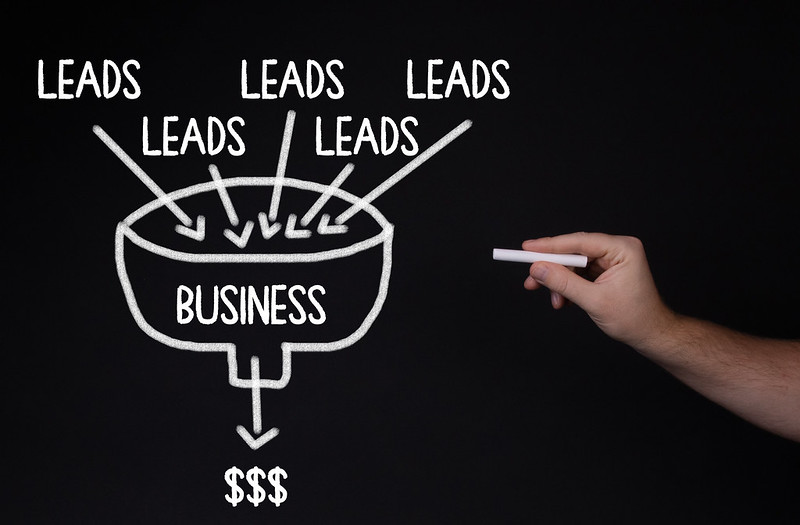
Improving sales staff efficiency
It’s estimated that your sales staff spend around 33% of their time doing non-sales activities. These are tasks that have to be done but don’t move the needle when it comes to closing deals.
Tasks like responding to RFPs, writing reports, or capturing data are all important parts of the sales process, but AI tools can do them faster and more efficiently than your sales staff can.
Even tasks like deciding which prospect to call next or managing a meeting calendar can all be handled by sales AI platforms.
Imagine being in sales and never having to take notes at a meeting, wonder who you need to call next, or have to spend hours updating your CRM. That’s what AI is doing for sales teams right now. What could you do with that extra time?
Rock Content credits much of its 650% increase in year-on-year revenue to its implementation of the AI sales automation tools from Hubspot. Most sales teams would be happy with even a fraction of those kinds of results.
When your sales reps have more time and enjoy better results it’s a lot easier to maintain morale too.

What are the benefits of using AI sales tools?
Integrating AI into your sales process will take effort, and you need to be sure the solution that you choose gives you good bang for your buck. This snapshot of the befits of AI in sales should convince you that it’s worth the effort.
- Improved efficiency – Free your sales reps up so they can focus on sales and building relationships. AI sales tools can handle all the repetitive non-sales tasks like data entry, lead qualification, and appointment scheduling.
- Make better strategic decisions – AI can analyze all the data in your CRM as well as telephone calls and email communication with customers. It can help you forecast accurately and direct product and sales resources to the leads that are close to buying.
- Happier customers – When an AI chatbot accurately answers a customer query, you improve customer satisfaction without having to tie up sales resources. AI also helps sales professionals to personalize offerings to customers.
- Improved productivity – AI tools can analyze sales data to see what works and what doesn’t. This helps sales teams to focus their activities on tasks that actually drive sales and cut out the time-wasting busy work.
Using AI in sales to achieve these benefits will inevitably translate into more revenue, happier customers, and happier sales staff.

How sales leaders can start introducing AI tools
Once you’ve done your research and settled on the best AI sales tool for your company, you need to find a way to get the rest of your team onboard with using it.
Here are a few tips to make sure you get your team sold on the idea:
- Engage your team early on in the process to assess what they actually need. Some AI sales tools have all the bells and whistles, but your team may only need limited functionality at first.
- Make sure that the AI sales tool you choose is user-friendly. The easier it is to use, the more likely your team will adopt it. This is especially important if your team isn’t digitally savvy.
- Start small and go slow. Instead of doing a full implementation of a bunch of AI tools, choose one or two to evaluate how effective they are.
- Sell the benefits, not the features. Help your team understand how the tool will free up their time and make their job easier.
- Celebrate small wins. The sooner you can measure and demonstrate an improvement in one of your KPIs, the sooner people will become more excited about using AI in sales.
What are the best AI tools for sales teams?
The best AI sales tool is the one that fits in with your business and makes your sales team more effective and efficient in driving sales performance. That’s not the same for every company.
There are some comprehensive sales AI tools like Gong and Salesforce Einstein that work well for large corporations. But they cost a lot of money, and the integration process can be onerous.
Then there are smaller, more flexible solutions that are a better fit for smaller businesses. It’s really a matter of different strokes for different folks.
All of these tools use AI to intelligently automate different aspects of sales processes. Some offer a comprehensive suite of sales tools, while others focus on one or two areas.
Here are some examples of the best artificial intelligence sales tools and how they could help your sales personnel.
Sales Forecasting
For efficient resource allocation and accurate budgeting, your sales forecasts need to be spot on. Using AI in sales enables you to analyze your historical and current sales data to make your forecasts more accurate.
Hubspot has a collection of AI sales technology solutions, including a powerful machine learning AI forecasting tool.
This sales artificial intelligence tool is highly customizable and integrates with Salesforce as well as a number of other CRM systems. It does a deep dive into your CRM data to create a holistic picture of the sales pipeline with weighted opportunities.
Hubspot is able to use the data to predict which deals will close and how soon it will happen. This is ideal for accurate forecasting.
It delivers real-time sales forecasts and will offer suggestions for handling at-risk deals and actions required to close hot leads.
The forecasting tool is available in Hubspot’s premium edition of Sales Hub, and prices start at around $500 per month. This makes it a more affordable AI sales solution for smaller to midsize companies.
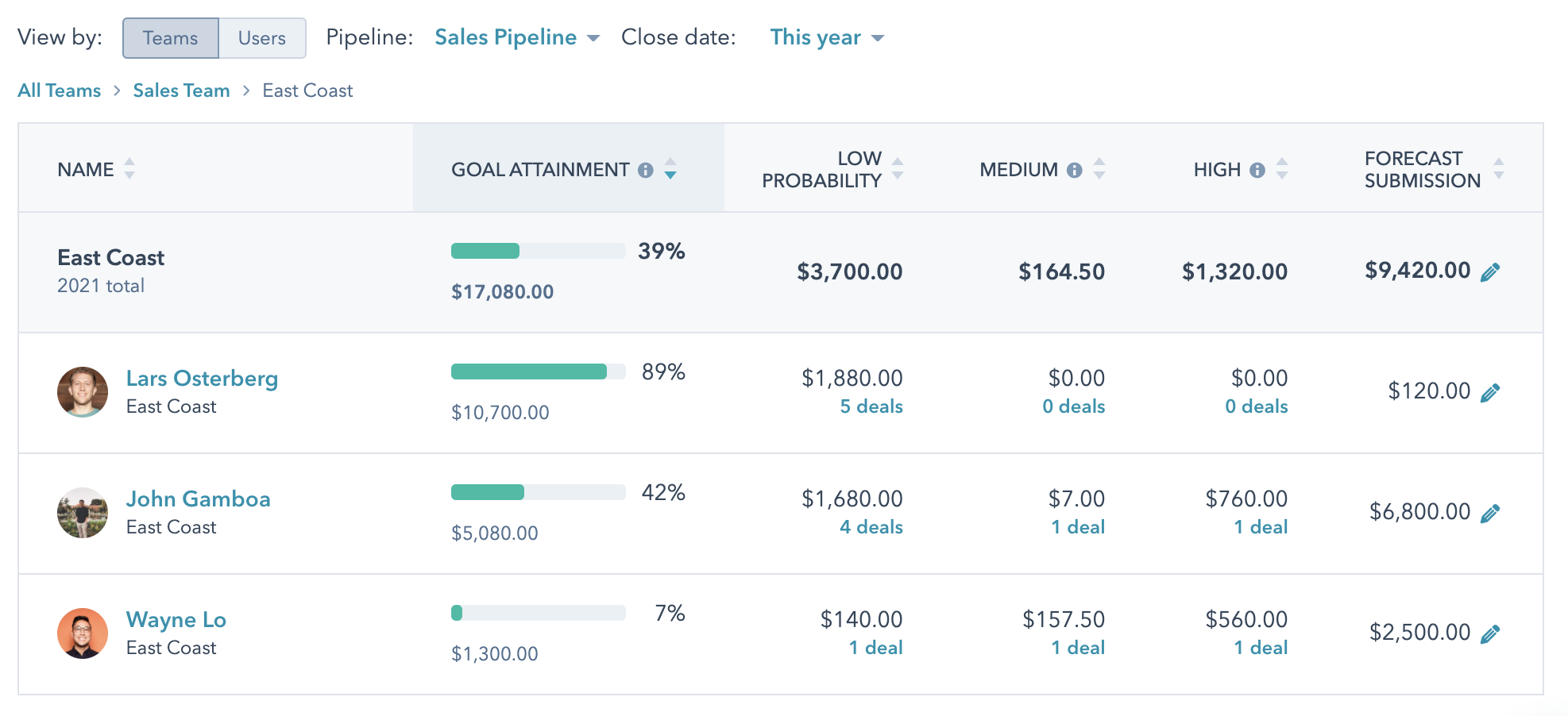
Aviso is an integrated AI sales program with a strong focus on forecasting with its Aviso Predict tool. While some AI forecasting tools give broader quarterly forecasts, Aviso uses machine learning to generate more complex roll-up forecasts.
It gives you more granular forecasts, including splits/overlays, product pivots, run rate, consumption base forecasting, and channel forecasts.
It also gives you forecasts of the expected sales performance of your team or individual sales staff.
We like how even though it integrates with a lot of different CRMs, it can replace your CRM, too, if you like. That way, you can save on licensing and have a more integrated single source of truth solution.
Aviso is a good fit for small to mid-size companies, but they also have enterprise solutions for large corporations.
Pricing is varied and only available on application. But expect a base cost of a few thousand dollars per year and around $1,200 per user license per year.
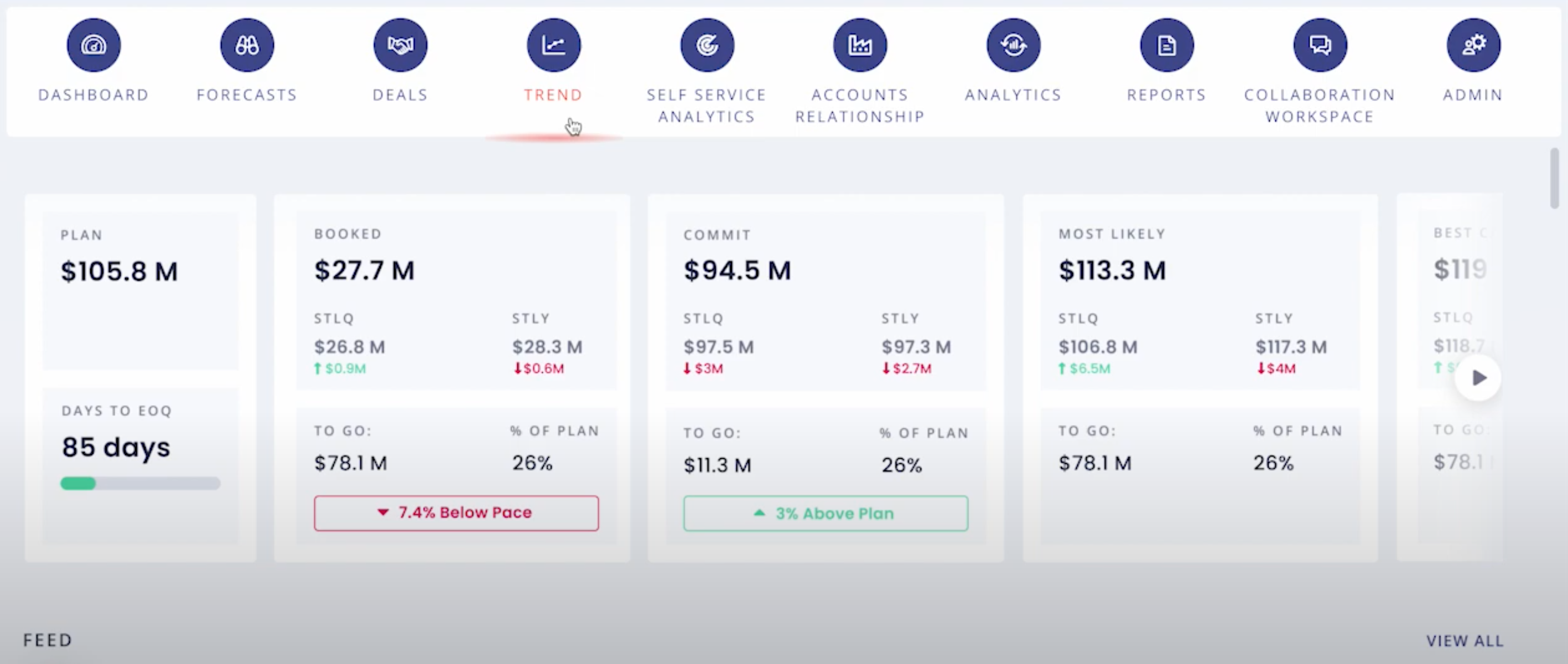
Lead scoring and prioritization
With finite sales resources and a long list of leads, it’s important to know which ones to focus on. Artificial intelligence can analyze new leads to qualify them and highlight which current opportunities should get the most attention.
These tools not only analyze data from your CRM but can also use natural language processing to monitor other data sources like telephone calls and emails. This helps your sales staff know which high-intent leads to pursue and offers suggestions on how to customize their approach.
Freshworks is a complete business software suite, and Freshsales is its AI-powered sales CRM. It’s great at giving a snapshot overview of your leads and then scoring them so you can focus on the high-intent, ready-to-close leads.
Once you’ve configured positive and negative contact scoring signals based on your ideal client, the AI will score your contacts and show you who is most likely to buy.
It uses machine learning to monitor other data like product interactions, website visits, and more to refine the scoring criteria and get better at lead prioritization. It also recommends the next best action to move the contact toward making a purchase.
They offer a free trial, and licensing starts at $15 per month per user. It has enterprise options too, but the lower pricing and simple solution make this a great fit for small to medium-sized sales divisions.
If you’re looking to dip your toes into the AI sales pool, this is a good place to start without committing to a comprehensive tool.
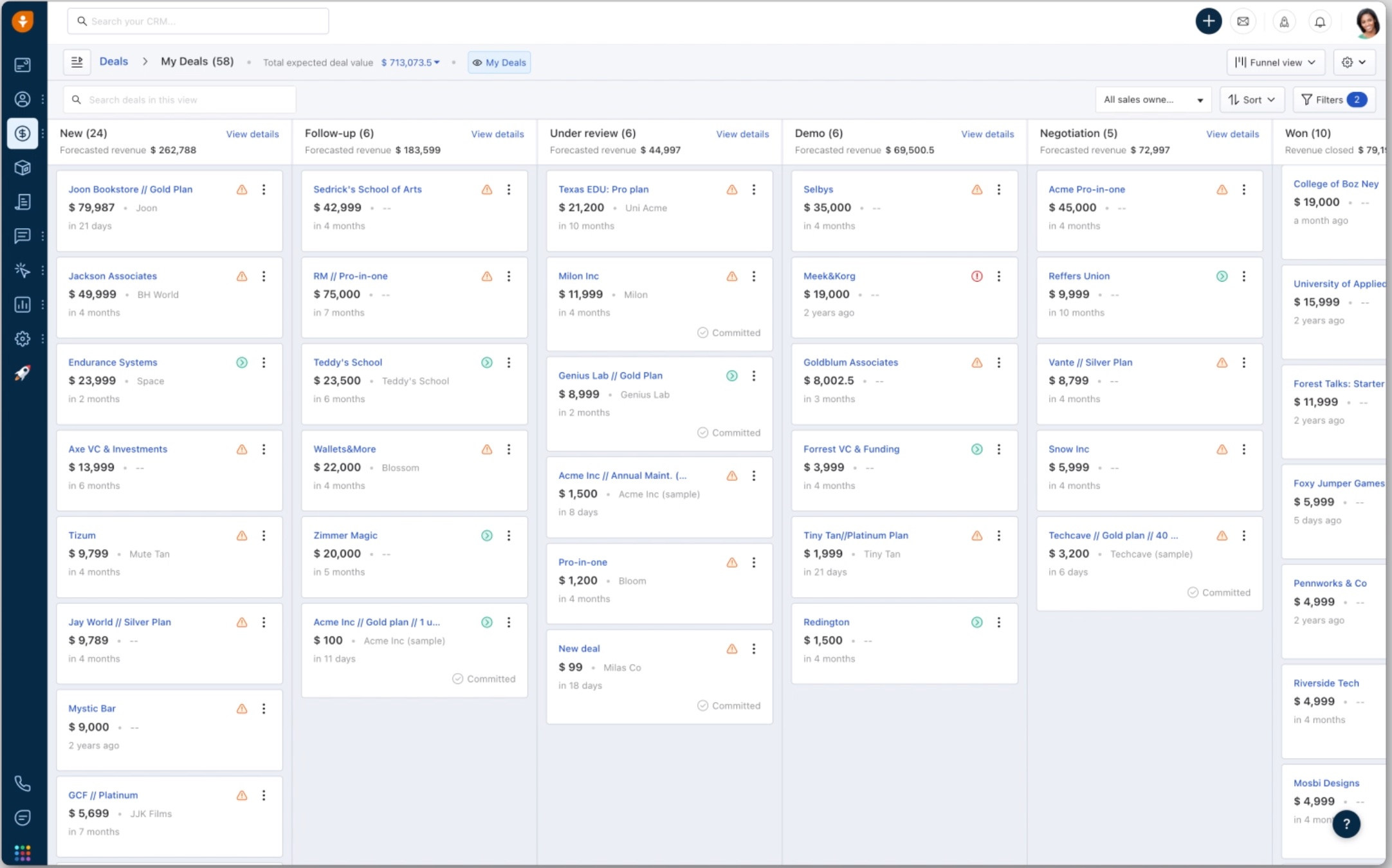
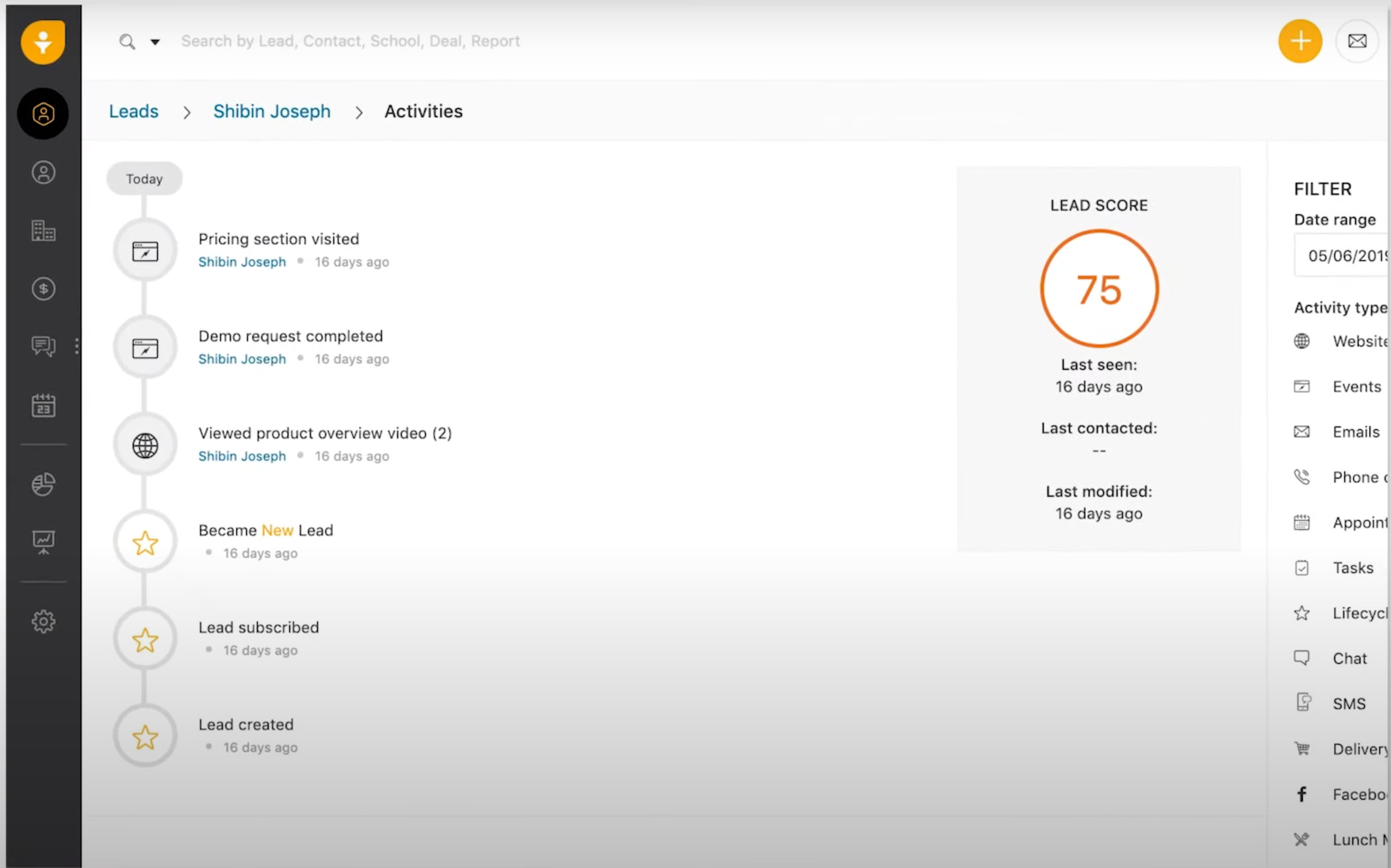
Price optimisation
Artificial intelligence can monitor customer sentiment and market conditions to optimize the prices of your products. It can raise prices automatically when it anticipates that sales won’t be affected, and it can offer a discount to a specific customer that may be more price sensitive.
Dynamic pricing allows you not only to do broad price adjustments when your competitors run a sale but can individually optimize the pricing per customer to maximize revenue and profitability.
A lot of the bigger AI sales products allow for the integration of price optimization software but don’t necessarily have it as part of their own solution.
Here’s an example of an artificial intelligence price optimization solution that works independently or with other platforms.
Intelligence Node has a number of software products focused on retail sales. It has an AI-driven price optimization tool that does real-time price optimization. It scans the internet for similar product offers and uses rule-based artificial intelligence to adjust pricing dynamically.
It has data refresh rates of up to 10 seconds, so your price optimization is done on the fly for a rapid market response.
The minimum pricing for their solution starts at $5,000 a month and varies based on the number of SKUs and competitors you track. The expected ROI for a large online retailer justifies this kind of expense, but not for smaller retailers.
They have a cheaper Shopify app called PriceIntelligence AI that starts at $250, which is great if you’re a smaller online retailer using Shopify.
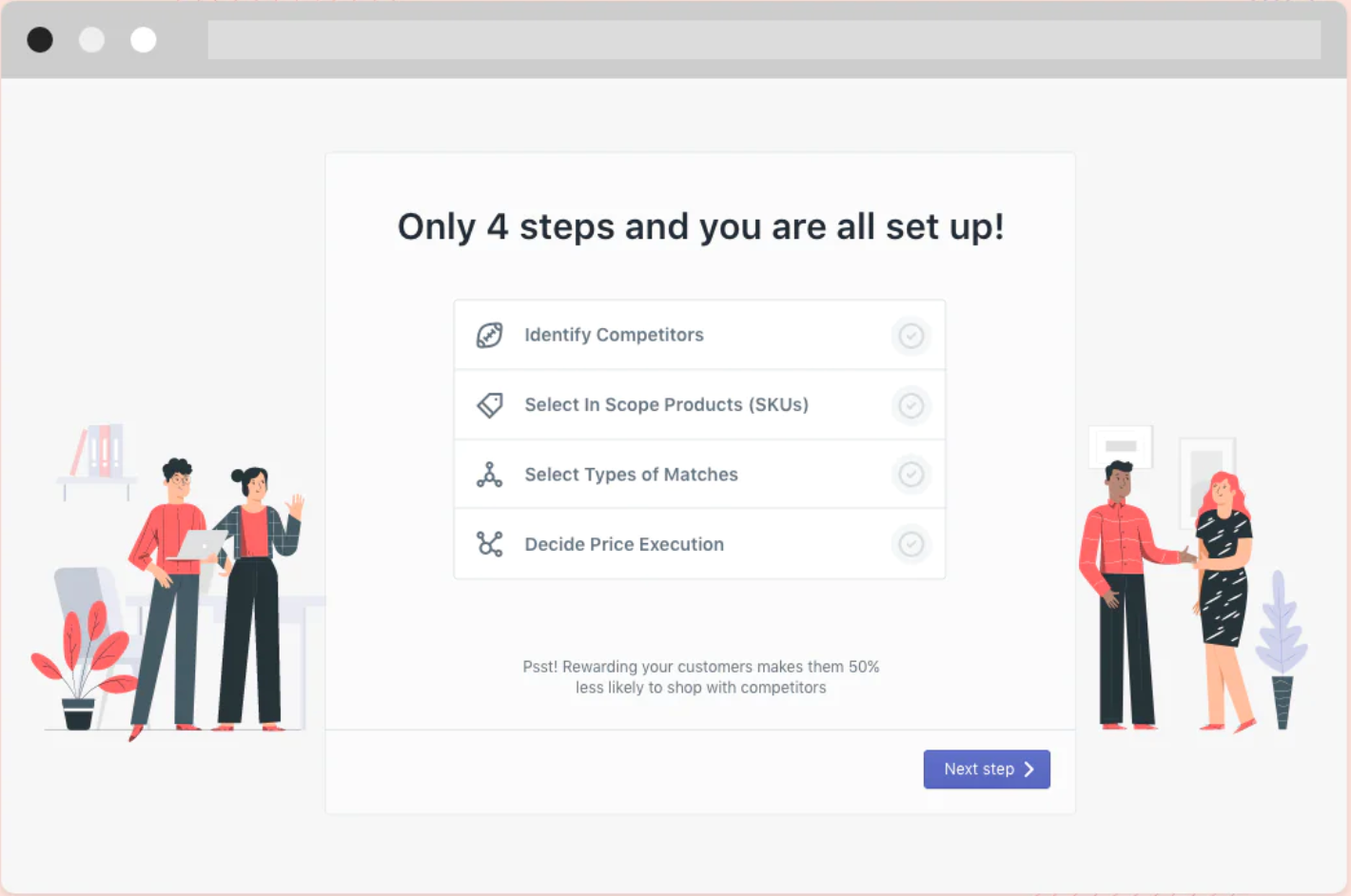
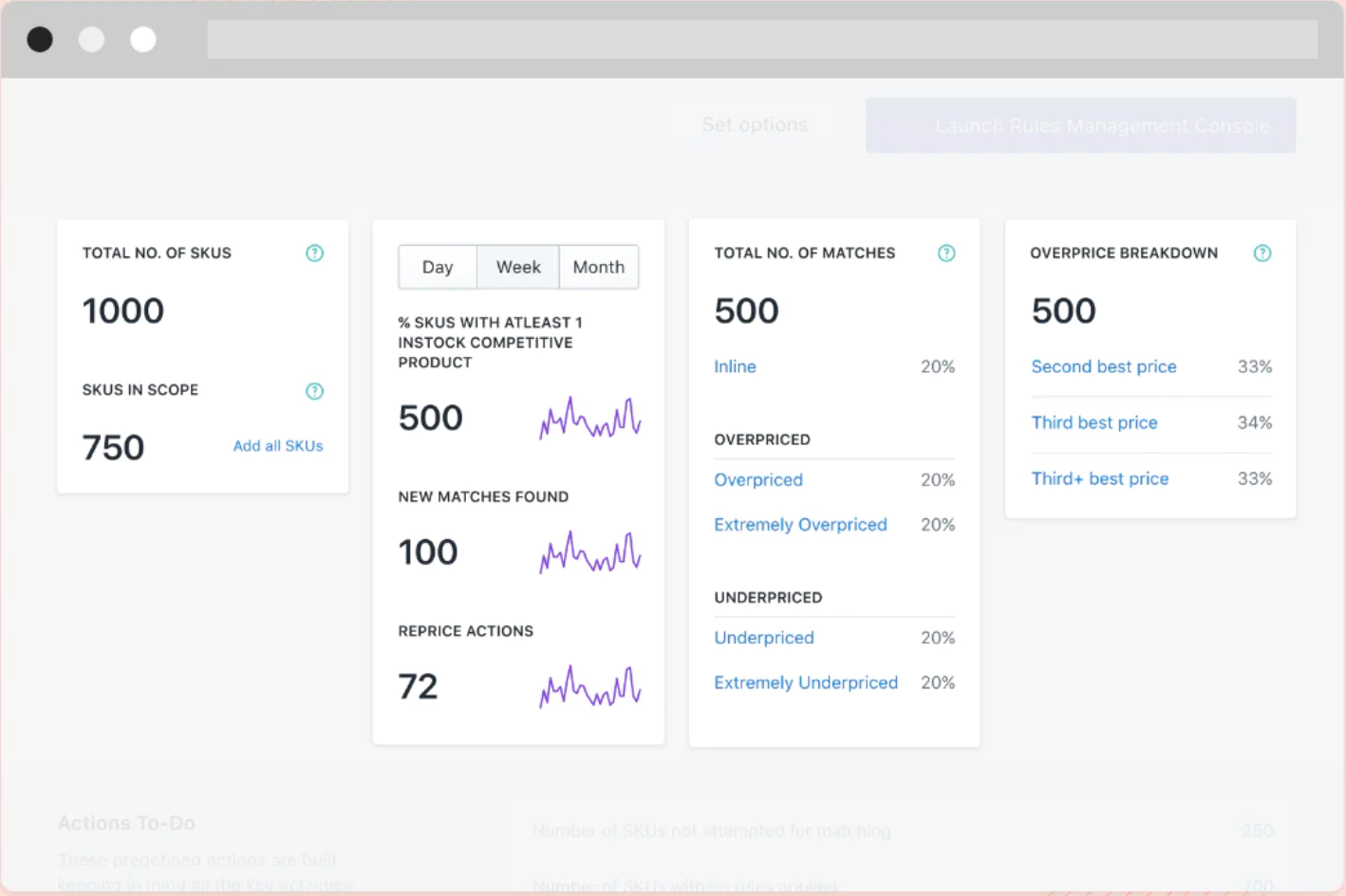
Pipeline Management
AI-based pipeline management collates all the business data you have as well as customer interactions to give you a snapshot of the health of your sales pipeline. This helps you spot at-risk deals, opportunities to close, and where to focus your sales resources.
Gong is one of the best AI sales tools on the market and is popular with larger sales organizations. They offer a full suite of sales solutions, and their pipeline management stands out. It uses data from your CRM as well as web conference, call, and email interactions with your customers to generate a clear pipeline dashboard.
The AI uses machine learning to analyze all the opportunities and then gives advice on what actions your team should take to move the opportunities toward concluding the deal. It’s also really good at identifying and incorporating customer sentiment into the suggestions it gives.
It will even advise you on the right person in your team to tackle a specific opportunity or if more contacts should be involved.
Bluecat experienced a 29% reduction in its sales cycle length by incorporating Gong’s artificial intelligence pipeline management.
Gong is a great solution for mid to larger corporations, but it’s pricey. Pricing is dependent on the number of licenses and the modules you want to include but bank on around $5,000 base cost and $1,400 per license per year.
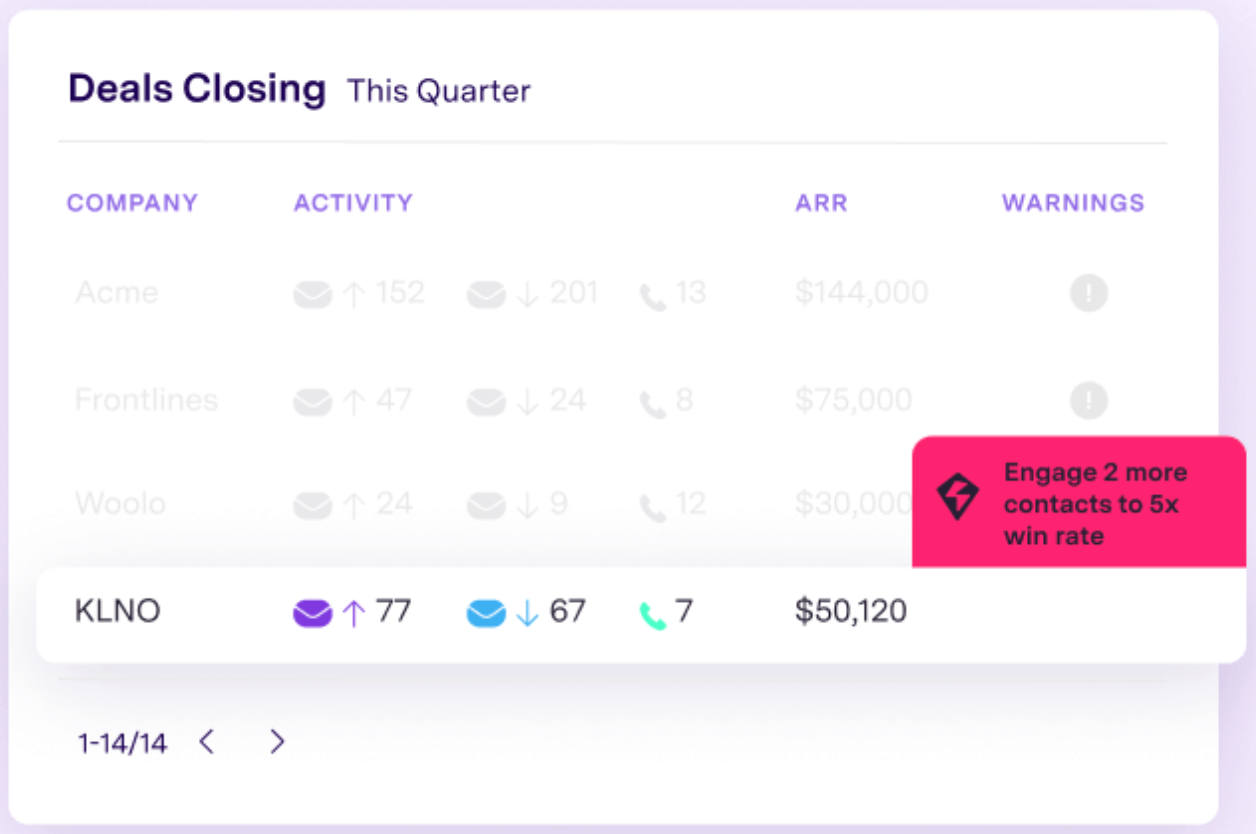
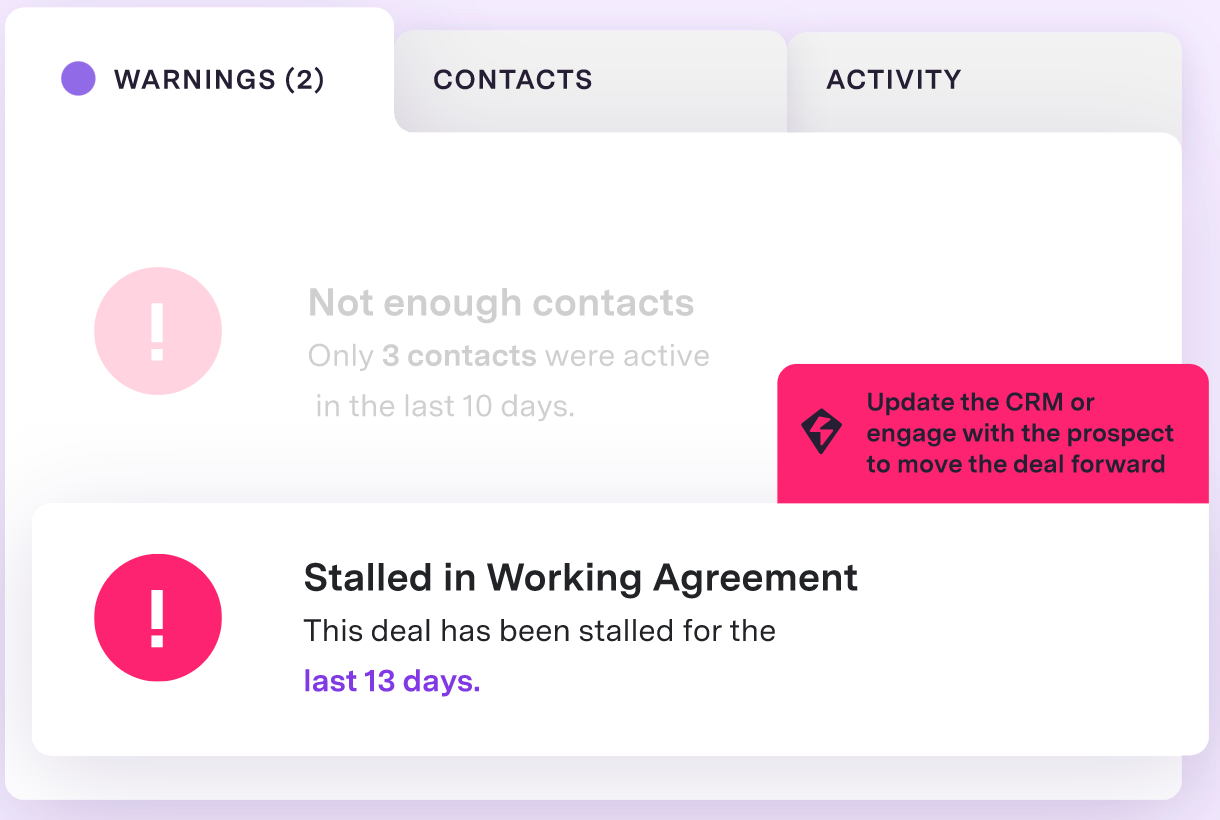
Tools comparison
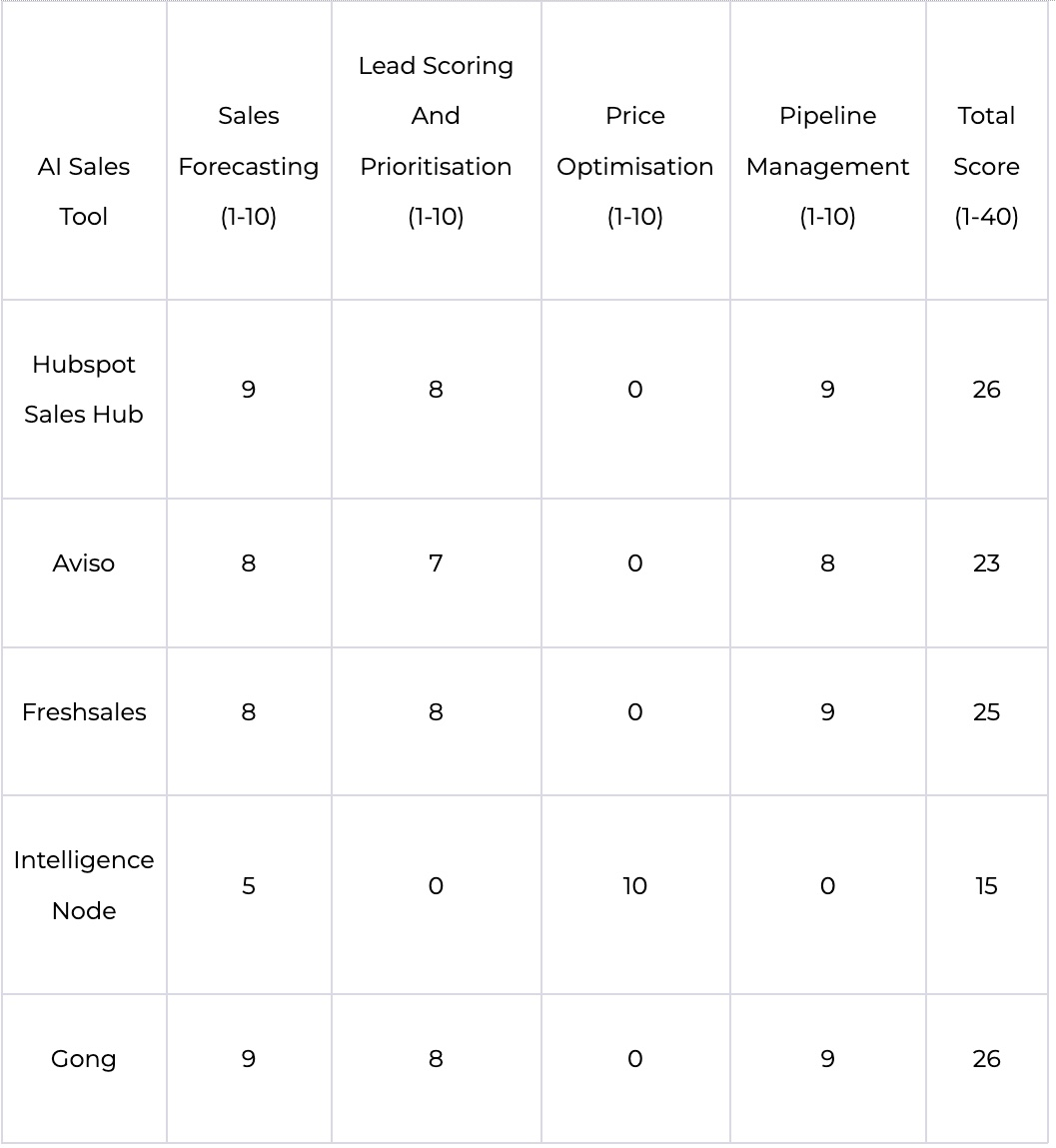
Conclusion
If you have good CRM and customer interaction data and want to make sense of it all, then artificial intelligence sales tools will do a lot better job than any human can. These solutions will automate a lot of your sales operations work your team currently does and have them laser-focused on hot prospects that are ready to be converted.
The increase in win rates and having a more efficient sales team make the price point of these solutions worth it. Successful implementation of AI in sales is highly dependent on having a lot of good data collected. So make sure your CRM is in place before trying to implement AI in your sales strategy.
FAQs
How can AI help sales within a business?
It can analyze CRM data to provide accurate forecasts and highlight opportunities that your sales staff should be focusing on. It can also automate a lot of the non-sales activities that take up a lot of your sales personnel’s time.
Which areas of sales can AI tools support?
AI tools can help a sales manager with revenue forecasting, pipeline management, lead scoring and optimization, price optimization, and automation of sales activities.
What are the main benefits of using AI in sales?
- Increased efficiency in the sales process
- Shorter sales cycles
- Higher revenue
- Forecast sales more accurately
- Improved sales staff productivity
What are the most popular AI tools for sales?
There are many AI tools for sales available. Some of the more popular ones are:
- Gong
- Salesforce Einstein
- Hubspot Sales Hub
- Freshsales
- Chorus
Inge von Aulock
I'm the Founder & CEO of Top Apps, the #1 App directory available online. In my spare time, I write about Technology, Artificial Intelligence, and review apps and tools I've tried, right here on the Top Apps blog.
Recent Articles

As a business leader, you’re always searching for ways to stay ahead of the competition. What about AI in marketing and sales? In...
Read More
AI in competitive analysis isn’t a trend anymore; it’s the new standard. In 2024, the game has changed. The ability to harness AI...
Read More
AI content generation isn’t the future anymore; it’s the present. And it’s transforming the way we create content, making it faster, more consistent,...
Read More